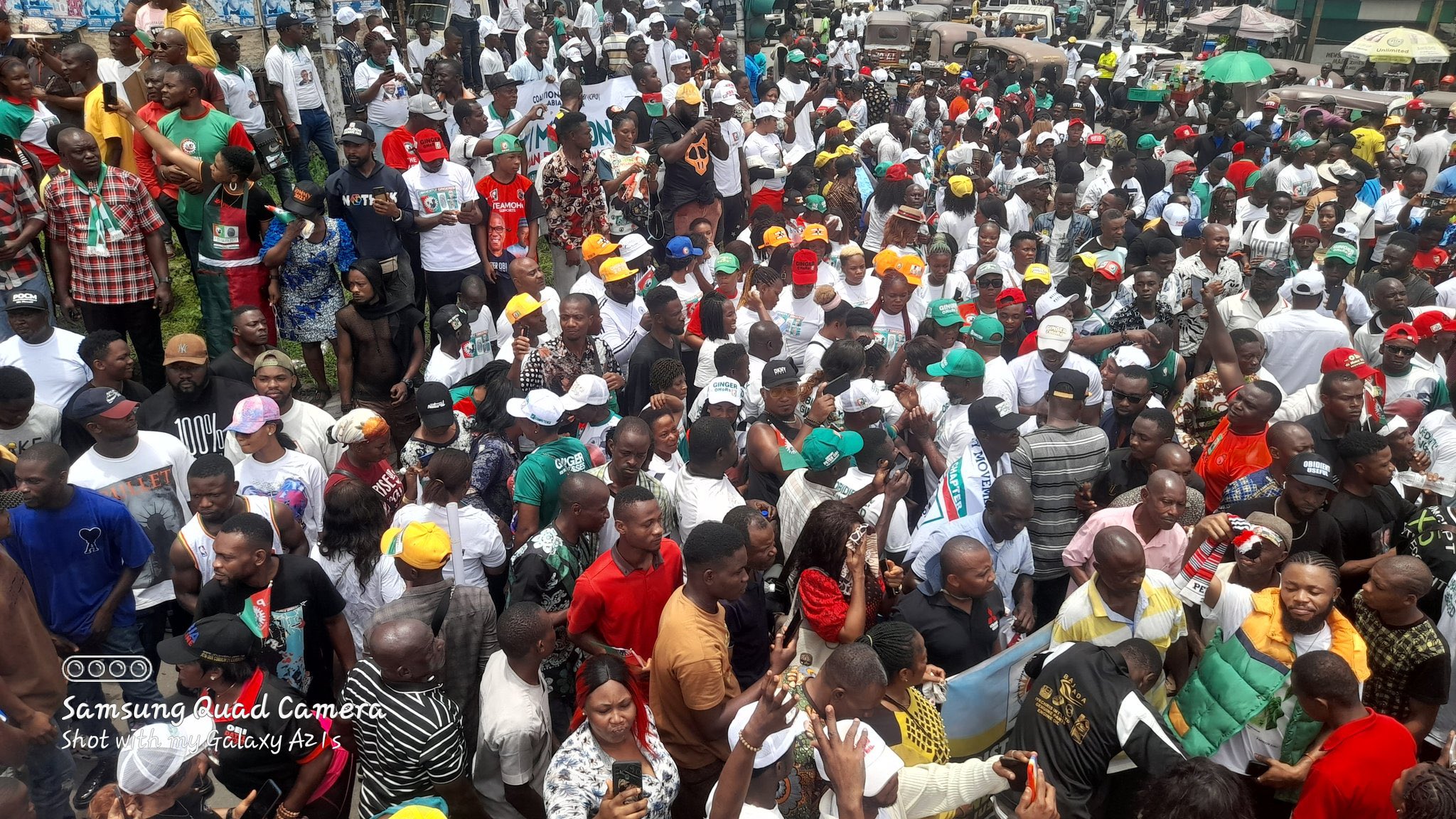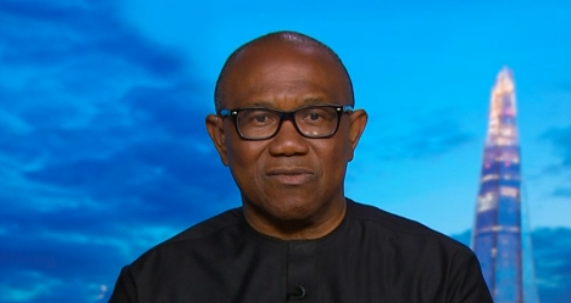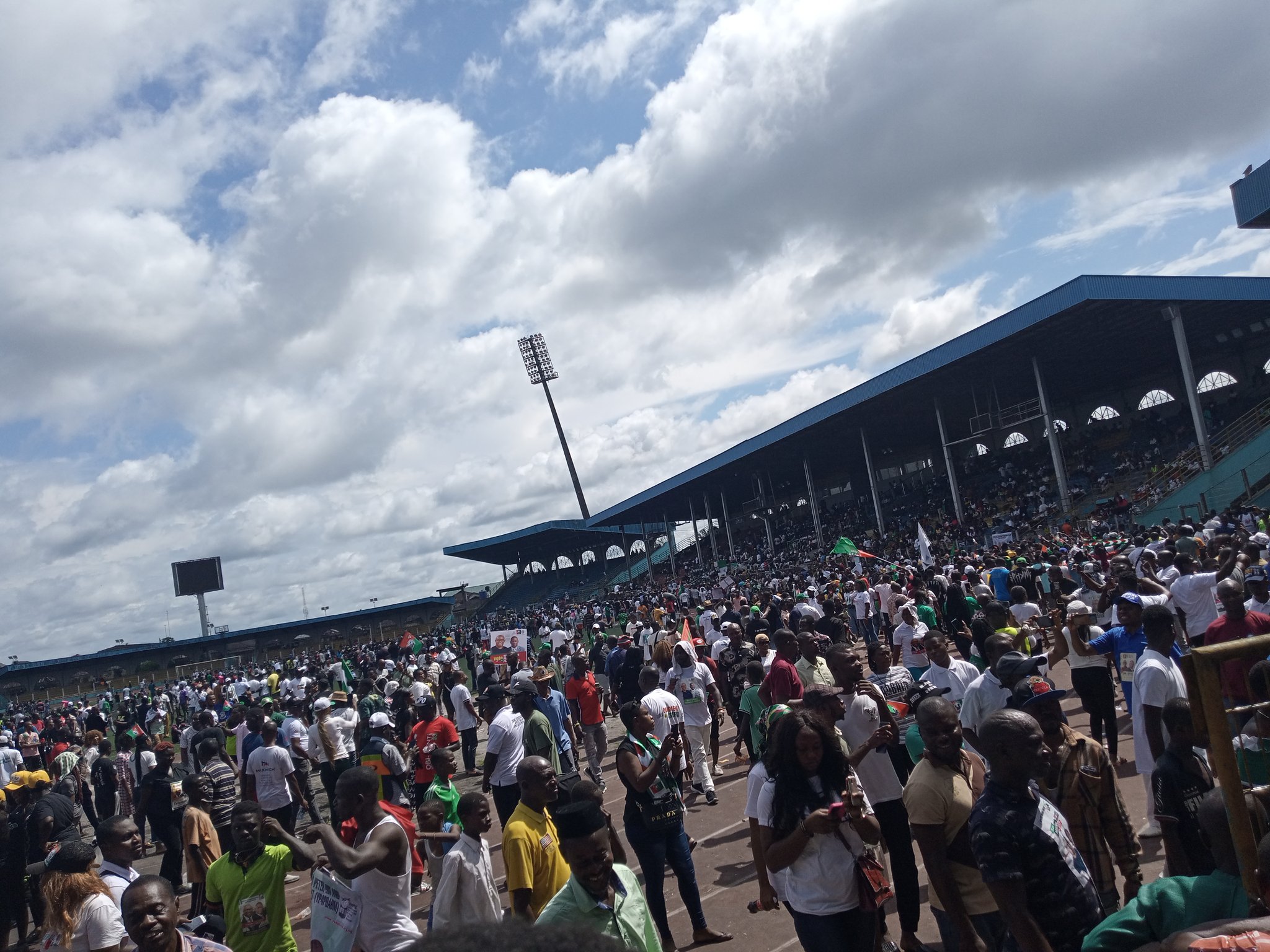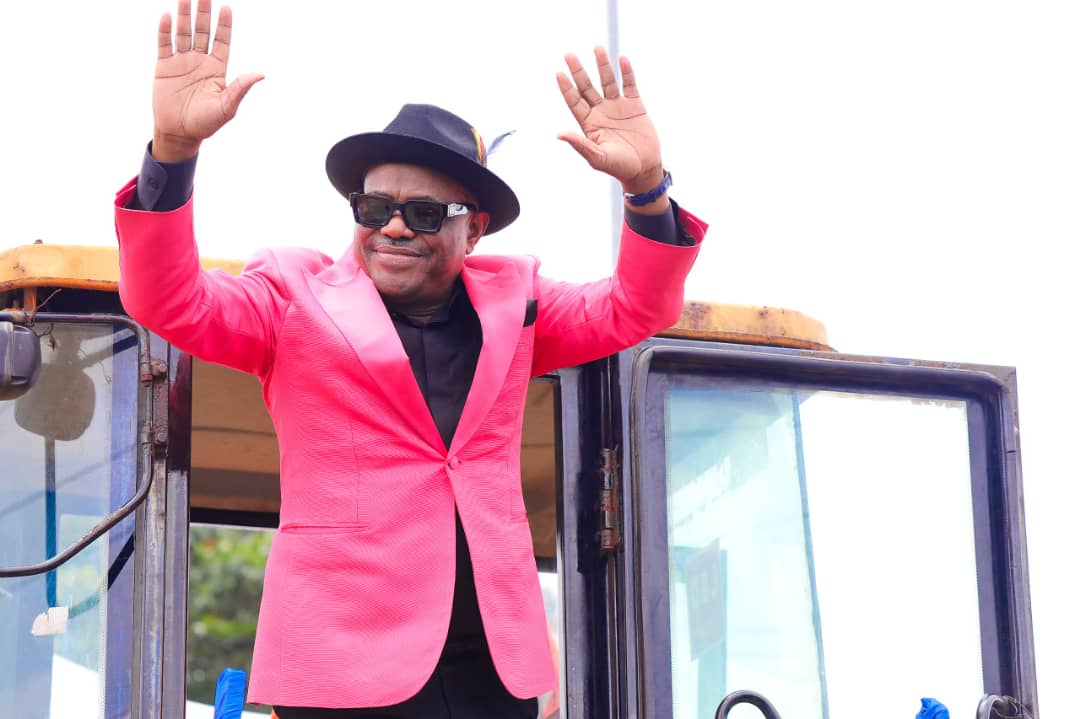Whenever Nigerian politicians talk about figures, they have a way of being generous with it, especially, if it is about how many people are their registered members. For this reason, I always question my own elementary arithmetic skills by the time the next election’s result is released and analysed. This is because, if one juxtaposes the total number of registered voters in the database of the Independent National Electoral Commission (INEC) with how many members they claim to have registered, there is usually a yawning gap between the acclaimed, or allocated figures, and the actual number of votes.
The total number of votes could be more than the entire registered voters (not, even, those who were actually accredited) like it happened in 2007, when Maurice Iwu, a professor and INEC chairman at the time, declared Umaru Musa Yar’Adau of the People’s Democratic Party (PDP) with a figure of 24,638,063 votes without providing the details. That happens to be the highest vote, ever recorded by any individual candidate in an election in Nigeria.
But in most cases, especially, since rigging an election through falsification of figures has become much more difficult now, than it has ever been, due to some measure of improvement by the election-organising body, one wonders, to what end do they quote those bogus figures when it comes to, telling the world, how many of their card-carrying members there are? It becomes funny when on the day of the election, the candidates of the party, so blessed with such numbers, fail to record up to 10 percent of the acclaimed figure.
Still fresh in my memory is the last year’s November 6 gubernatorial election in Anambra state. One of the candidates, Andy Ubah of the All Progressives Congress (APC) claimed his party had registered over 1,000,000 members, but the party ended up in the third position with 43,285 votes. I was then tempted to ask; where were the remaining, over nine hundred thousand registered members of the party? Even if one says, perhaps they defected to other parties, the respective results of individual candidates, including that of the eventual winner, do not add up. I know, the ruling party in the state, the All Progressives Grand Alliance (APGA) and other opposition parties, like the People’s Democratic Party (PDP), the Young Progressives Party (YPP), and others would have claimed something similar, if they were asked a similar question. This, no doubt, keeps fact-checkers occupied. Former governor of the Central Bank of Nigeria (CBN) and candidate of the All Progressives Grand Alliance (APGA), Charles Chukwuma Soludo, won the election, polling a total of 112,229 votes.
Advertisement
So, to say that, Nigerian politicians are never bothered by the inconsistencies between their bogus figures which they use to incite their supporters, and the actual result of elections is putting it mildly. As things stand currently, I am already bracing up for another round of such inconsistencies by the time the result of the forthcoming presidential election is released in February or March 2023, after the ruling APC, claimed to have registered 40 million, yes you read me right, 40 million members nationwide per their last membership registration and revalidation exercise. The opposition party, the People Democratic Party (PDP) did their membership registration but have not officially announced how many Nigerians are card-carrying members. But I am certain anytime they declare, it will run into dozens of millions. Let us not forget that the highest-ever vote by any presidential candidate in the history of Nigeria’s corporate existence has been late Umaru Yar’Adua, in the 2007 general election, which was put at over 24 million.
They, now, have mastered the art of using visuals of the crowd from political rallies, real or photoshopped, to project how they imagine they will sweep the votes on election day. But fact-checkers have found some of the pictures to be, either from unrelated events or from outside the country. With it, they tend to convince a mass of their uncritical supporters that, victory is theirs for the asking. That is where the problems arise, by the time some reality check sets in, after the result is announced, and their parties are far off the top of the log. The gullible supporters, go berserk, in an orgy of violence, maiming and killing innocent law-abiding people, in retaliation for the “injustice” allegedly meted out to their candidate, and by extension, party. “Lori irọ” (all based on falsehood).
Let us not forget, however, the reality of voter’s apathy, which could help explain the gaps, but they are, mostly, too yawning for it to be adequate in explaining it away. Do not also forget how funnily smart, an average Nigerian could be, trying to eat from left, right, and centre, thereby engaging in double or multiple registrations, in a party, and for parties respectively. Some Nigerians have the capability to be a registered member of more than one party at a time, at least, to collect “the stomach infrastructure” that would most definitely be on offer.
Advertisement
Since INEC lifted the embargo on campaigns for the presidential and national assembly elections (subsequently, on the gubernatorial election on Wednesday, October 12, all the political parties, and subgroups within each of them have been embarking on solidarity rallies, popularly referred to as “Man-March” for their candidates. From Tinubu to Peter Obi, to Atiku, rallies have been organised across different cities in the country. Some would say 2-million-man-march for candidate XYZ; while others say 5-million-man-march and so on for candidate RST, etc. The irony of it all is that in each of those locations where they embark on these million-man-marches, the eventual winner in those states may struggle to record 10% of those figures, earlier declared to be the registered members of just one of the parties as votes. You’d then want to ask yourself, where are the remaining participants in the “kinikan-kinikan-million-man-march” held a few months or weeks before the election? Well, that is your own to figure out. That is how we roll; “All na cruise“.
Nobody bothers to ask such critical questions anymore after the whole thing has been concluded. The consequence is that those who are gullible, and fanatical about their support for a particular candidate, or party, are more likely than not, to resort to violence, post-election, on the ground that, their party has been allegedly robbed of victory. That is, if the figure that the “media minders” of their candidate, had projected, is anything to go by. Those in charge of publicity for these political parties, sometimes resort to surfing the Internet, to scavenge for photos, or videos of the crowd from anywhere across the globe, as I said earlier, just to drive the fraudulent narrative of “I-have-the-number-to-win-the-election”. Another thing used by the politicians to cook up figures is when they claim to have received hundreds of thousands of people who defected from other parties to theirs. They purport this to swell their number in such a way that victory becomes imaginarily theirs for the asking. The issue Nigerians have with figures is not limited to politicians, it is common with most of us. We quote statistics to suit our purpose in every context. Like the issue of the population, we do not have a definite figure. How many people live in Nigeria is dependent on the emotion of who is speaking.
One does not need the service of a soothsayer to know that it is a recipe for post-election violence for any group of supporters who feel that their preferred candidate has been cheated out of a possible and well-deserved electoral victory, based on the number of people the party claims to have registered as members, or those that attended pre-election rallies, or defected, and received, into their party. All that some social malcontents need to trigger their base instinct is a loosely woven conspiracy theory which suggests that their preferred candidate did not lose but was robbed, through an imaginary rigging, by a God-knows-who.
I became scared, when, on September 28, a Twitter user by the name, “Arákùnrin Mutiny” (@mutineer8961) tweeted that “100% a (sic) free and fair election sees him (Peter Obi) with a landslide victory”. Another user by the name, David Hundeyin (@DavidHundeyin), replied to the tweet, saying; “Only INEC can stop Peter Obi from becoming Nigeria’s next president”. David Hundeyin is a very famous investigative journalist with loads of followers on Twitter. A lot of them, no doubt, look up to him for opinion-shaping. So, whatever he says, to them, is likely going to be taken to the bank. That is why it is very dangerous to make that kind of spurious projection or bandy around figures that are neither here nor there in an attempt to predict the likely winner of an election based on the “Mo gbọ́ mo yà” crowd that normally grace political rallies in Nigeria. In this case, they count even pickpockets who are there doing their business as supporters whose votes are already in the kitty. Even among their most vocal supporters on social media, how many of them are registered voters with voter’s cards? And among those who have, how many of them are ready to be in queue for an hour on election day?
Advertisement
If you claimed on social media that 5 million people rallied for a candidate pre-election yet the candidate ended up scoring way below half a million in the election, it would be difficult to convince the majority of the uncritical and unlettered supporters that their preferred candidate was not rigged out but that he actually lost the election. That the kind of narrative that suggests victory for a particular candidate, based on such non-scientific propositions, is a perfect recipe for disaster like we witnessed in the aftermath of 2011 general election when some parts of the north erupted in violence because they believed a certain candidate based on his perceived popularity in that part of the country was a “sure banker”, to win the election. But since the outcome of the election was at variance with their hunch, the supporters went berserk in an orgy of violence that resulted in the loss of many innocent lives.
Those who make such spurious forecasts should be aware of the weight of the responsibility they are bearing as a result of the influence they wield on their social media followers who go ahead to spread the “gospel” offline, to the uncritical mass whose only language of expression is violence. And before anyone could say “Jack”, the whole nation goes up in flame. To avoid setting the country on fire now, politicians and their social media handlers need to desist from heating up the polity using such reckless proclamation that tends to whip up sentiments with such a baseless, and incandescent statement like; “only rigging can prevent candidate XYZ, from winning”, or “if INEC is neutral, then victory is assured for Chief ABCD”.
Abubakar writes from Ilorin. He can be reached via 08051388285 or [email protected]
Advertisement
Views expressed by contributors are strictly personal and not of TheCable.
Add a comment







